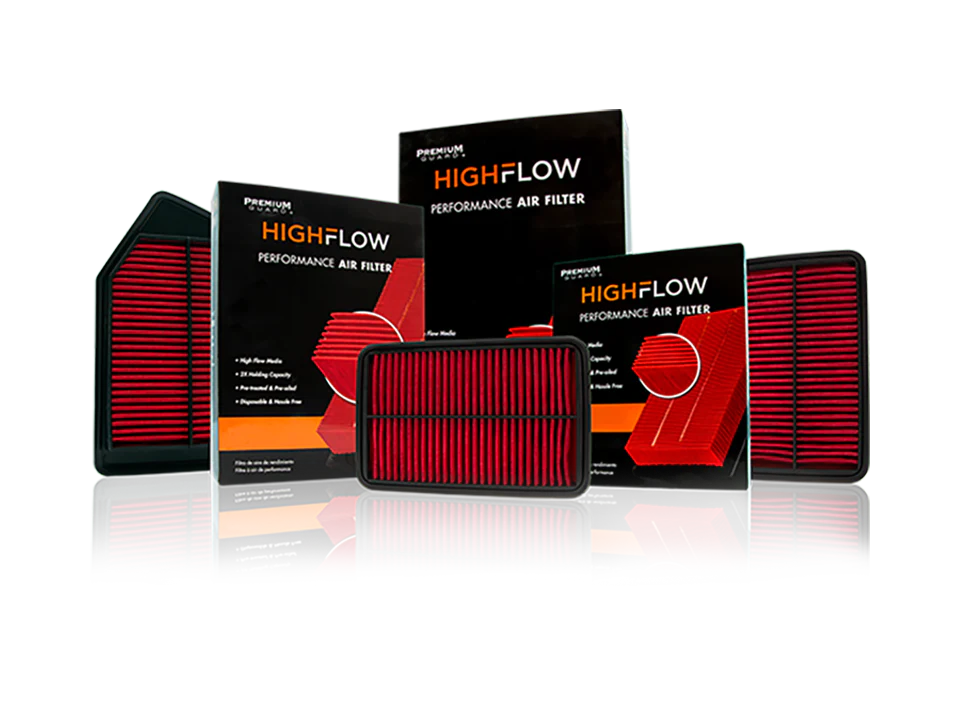The Ultimate Guide to Car Filters: Types & Functions

When it comes to your car's well-being, you might think of the engine, tires, or brakes first. But there's another unsung hero that plays a crucial role in keeping your vehicle running smoothly – car filters. In this comprehensive guide, we'll explore the different types of car filters and what they do. Whether you're a car enthusiast or just looking to understand the basics, we've got you covered.
Oil Filter: Your Engine's Lifesaver
Your car's engine works hard, and it needs clean oil to run smoothly. The oil filter is responsible for filtering out impurities and contaminants from the engine oil. This keeps your engine well-lubricated and prevents premature wear and tear.
Key Benefits and Functions:
Regular oil filter replacement is essential for the longevity of your engine.
The oil filter is a small yet mighty component of your car's engine. Its primary role is to protect the engine by removing contaminants from the engine oil. As your engine runs, it generates heat and friction, which can cause tiny metal particles and debris to circulate within the oil. If left unchecked, these impurities can lead to engine damage and reduced performance.
The oil filter acts as a guardian, trapping these impurities and preventing them from reaching vital engine components.
When you neglect to replace the oil filter regularly, it can become clogged with these trapped impurities. This results in reduced oil flow, causing your engine to operate with dirty oil. Over time, this can lead to increased friction, excessive heat, and even engine failure.
So, to keep your engine in prime condition, it's crucial to adhere to the manufacturer's recommendations for oil filter replacement. Generally, this falls within the range of every 3,000 to 5,000 miles, but be sure to consult your car's manual for specific guidelines.
Cabin Air Filter: Breathing Fresh Air
Ever wondered what keeps your car's cabin smelling fresh? It's all thanks to the cabin air filter. This filter ensures that the air circulating inside your car is free from dust, pollen, and other pollutants. So, take a deep breath – your cabin air filter has got you covered!
Key Benefits and Functions:
A clean cabin air filter improves air quality inside your car.
When you're driving down the road, you want to breathe clean, fresh air. The cabin air filter is responsible for making that happen. It acts as a shield between the outside air and the interior of your car, trapping dust, pollen, smoke, and other contaminants.
If your cabin air filter is dirty or clogged, the air quality inside your car can suffer. You may notice musty odors, increased allergy symptoms, and reduced airflow from your HVAC system. This not only affects your comfort but also your health.
For optimal air quality and comfort, it's recommended to replace the cabin air filter annually or every 12,000 to 15,000 miles. However, if you frequently drive in areas with high pollution, dust, or pollen levels, more frequent replacements may be necessary.
Air Filter: Your Engine's Oxygen
Just as we need clean air to breathe, your car's engine needs clean air to operate efficiently. The air filter traps dirt and debris before they enter your engine.
Key Benefits and Functions:
Changing the air filter can boost your engine's performance and fuel efficiency.
The air filter is a fundamental component to your car's engine. Its primary job is to ensure that the air entering the engine is free from contaminants. Why is this important? Because clean air is essential for combustion within the engine, and combustion is what generates the power that moves your car.
Over time, the air filter can become clogged with dirt and debris, reducing the airflow to the engine. This, in turn, can lead to reduced power, decreased fuel efficiency, and increased emissions. To avoid these issues, it's advisable to replace the air filter every 15,000 to 30,000 miles, although more frequent replacement may be necessary in dusty or high-pollution environments.
Transmission Filter: Smooth Gear Shifts
Your car's transmission system plays a vital role in providing power to your wheels. The transmission filter is responsible for keeping the transmission fluid clean. A clogged filter can lead to rough gear shifts and potential transmission problems.
Key Benefits and Functions:
Regular maintenance of the transmission filter ensures a smooth ride.
The transmission filter, while often overlooked, is a critical component in your car's transmission system. It serves the essential function of keeping the transmission fluid clean and free from contaminants. Transmission fluid is responsible for lubricating and cooling the various components within the transmission, ensuring smooth gear shifts and the transfer of power from the engine to the wheels.
When the transmission filter is clogged, it can lead to a range of issues, including rough gear shifts, delayed engagement, and potential damage to the transmission. Regular maintenance of the transmission filter is crucial to ensure that your car shifts smoothly and continues to perform optimally. It's generally recommended to replace the transmission filter every 30,000 to 60,000 miles, but check your car's manual for specific guidelines.
Fuel Filter: Delivering Clean Fuel
Clean fuel is essential for your engine's performance. The fuel filter ensures that no dirt or contaminants find their way into the engine's fuel system.
Key Benefits and Functions:
A clean fuel filter prevents engine damage and maintains fuel efficiency.
The fuel filter plays a pivotal role in ensuring the integrity of your engine's fuel supply. It acts as a gatekeeper, preventing dirt, rust, and other contaminants from entering your engine's fuel system. Clean fuel is essential for combustion and maintaining your engine's performance and fuel efficiency.
A clogged fuel filter can lead to poor engine performance, reduced fuel efficiency, and even engine damage if left unaddressed. To prevent these issues, it's advisable to replace the fuel filter every 30,000 to 40,000 miles, though this may vary depending on your car's make and model.












